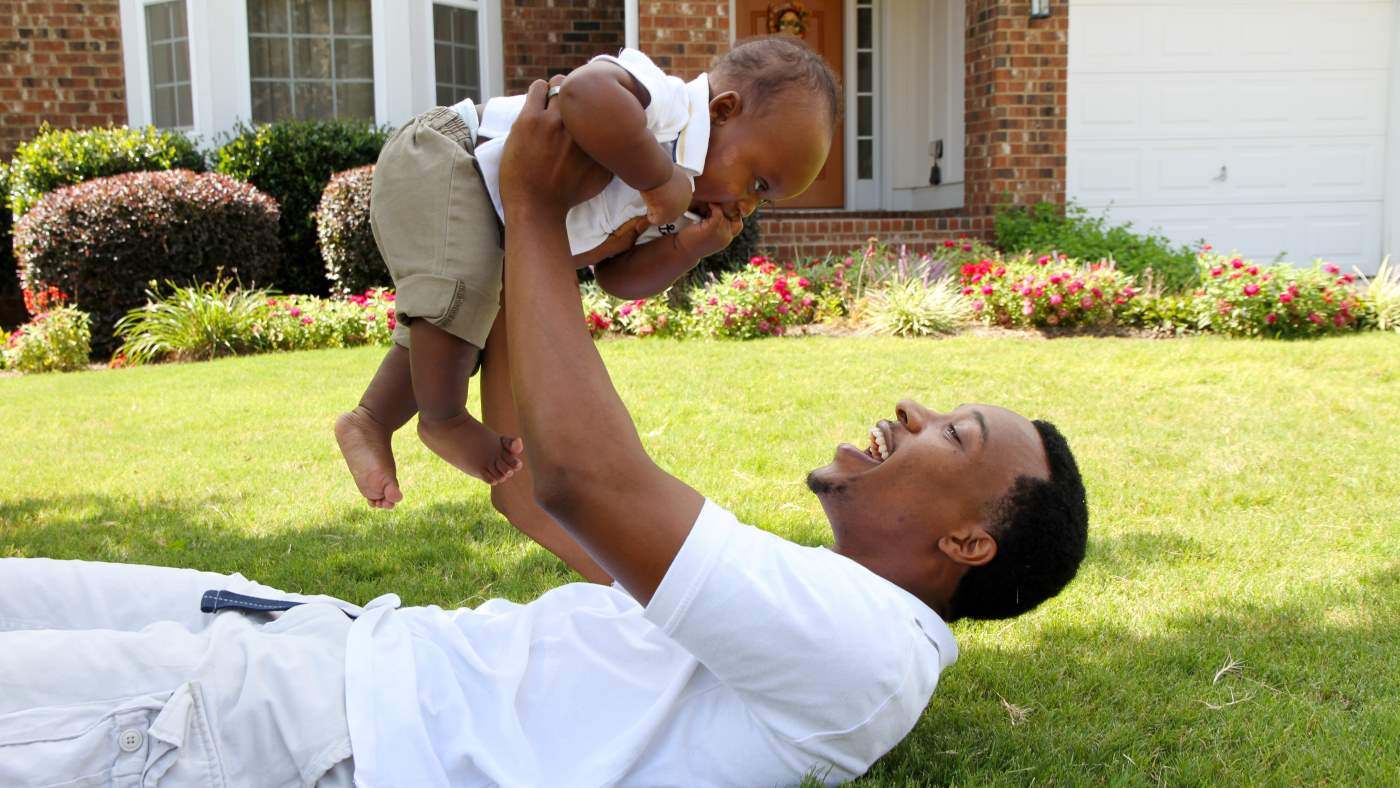The importance of play during your child's first five years

This week we will see the first United Nations International Day of Play. We're excited to see the importance of play being celebrated this week. It seems the perfect moment to share how your child's play will change as they develop and grow during their first five years.
Play-based learning advice for young babies
These early days of play are mostly about bonding with your little one and not necessarily about lots of toys. In fact, singing, playing peek-a-boo and reading to your baby are brilliant ways to play with your newborn.
These opportunities allow your baby to begin to understand relationships and communication. You can also support your baby’s curiosity to reach for and touch objects. By engaging in these early play experiences, they will begin to associate play with love and fun.
Play-based learning advice for older babies
As your baby's physical skills develop you'll notice they play in different ways (although play with you continues to be important!).
They'll be perfecting gross motor skills by rolling, crawling, sitting, pulling themselves up and maybe even taking steps. Because of this concentration on gross motor skills, they will use their whole bodies to interact and make sense of the world.
They will also involve all of their senses in this exploration, often exploring new objects with their mouths and enjoying sensory experiences that involve hearing and seeing new things.
Play-based learning advice for toddlers
You may notice that while your child continues to enjoy all of the above experiences, they'll spend more time engrossed in their play.
Their curiosity and need to explore will continue and you'll probably notice your toddler spending more time playing with the box a new toy came in, rather than its contents. While this might feel frustrating as a parent, boxes are a brilliant way to build children’s creativity and imagination.
You may also notice your child immerses themselves in play and will do activities over and over. This might seem to you that they're not getting anywhere and there's no outcome to their play.
An example of this might be; you want your child to make a castle out of bricks. But instead, they make a tower and proceed to knock it down over and over again. While this might seem pointless to us adults, it is an important part of their learning and development as by repeating an action, idea or concept they consolidate their learning.
So, try not to get too hung up on looking for a product, instead celebrate the process as they play.
As they develop and learn, they'll bring more language into their play and refine gross motor skills by running, jumping and climbing.
You might find that your child loves being outside as it gives them the perfect opportunity to practise all of these skills. Children at this age will begin to take part in more risky play while they explore boundaries and the limitations of their movements.
It's important (but can feel difficult sometimes) to give them some space to take risks in a safe way, as it gives them the opportunity to think creatively, critically and problem solve.
Play-based learning advice for preschoolers
Children will continue to take part in all the play we have already discussed. But they'll also be starting to immerse themselves more deeply and use their developing skills in their play.
For example, they might begin to explore a wider range of scientific and mathematical concepts and their imagination will begin to shine through.
You may also notice that your child might like to take part in rough and tumble type play. This will allow them to understand more about their body and strength, develop resilience, confidence and understanding of other people.
They will begin to be able to do more difficult puzzles and understand instructions and rules for taking part in games. You may also notice that they play with other children more often, although they will still enjoy playing alone at times.
Concluding thoughts
Play is an amazing way for your child to learn more about themselves and the world around them. Children are all on completely different paths and their journey of learning and developing is unique to them.
By watching your child play, you will be able to understand more about how wonderfully one of a kind they are and appreciate just how amazing it is to be discovering things for the first time.
Don't forget to check their skills journey and celebrate all the things they're learning as you play together.